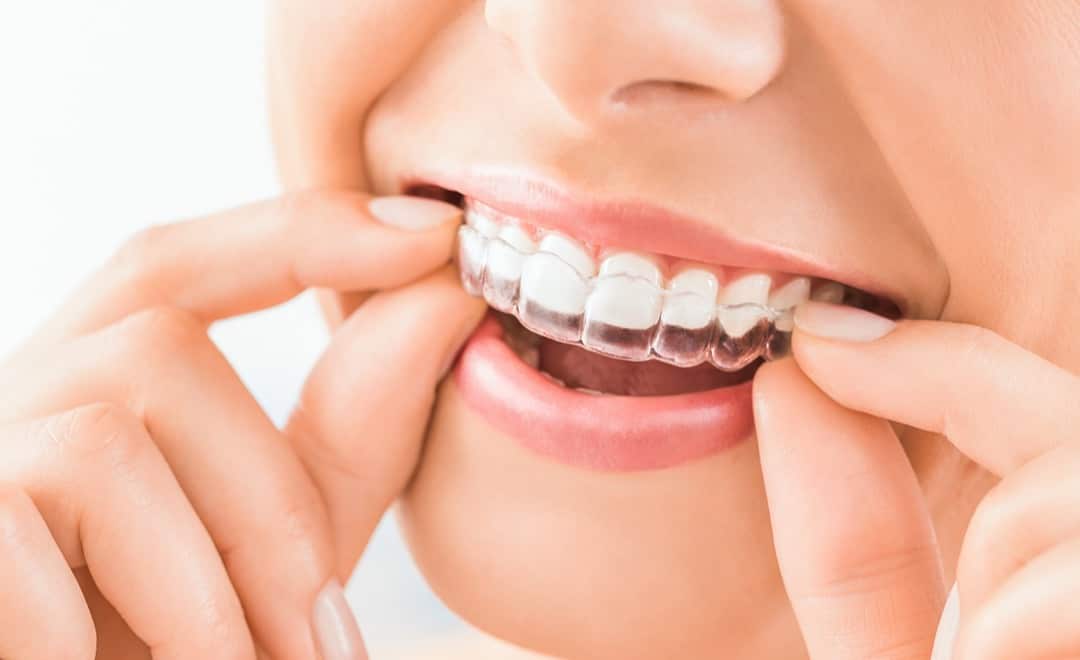When you have sensitive teeth, braces and clear aligners can exacerbate your existing discomfort. Fortunately, finding a family ortho who understands your concerns is simple at Stellar Family Orthodontics. With convenient locations in Mukilteo and Mill Creek, Washington, braces specialist Dr. Chad Carver, DDS, is available to answer any questions you may have about straightening sensitive teeth.
What causes sensitive teeth?
Teeth function best when they’re protected against wear and tear. To maintain strong, healthy teeth, you need a thick layer of tooth enamel and firm gum tissue. These structures work together to keep your teeth firmly in place and free of pain.
Common reasons teens and adults develop sensitive teeth include:
Enamel damage
Enamel is the mineral-rich layer on the outside of your teeth. It protects your teeth from damage by providing a much-needed barrier against erosion. While tooth enamel is the hardest substance in the human body, it isn’t impenetrable.
Bruxism (teeth grinding), tooth decay, jaw clenching, and injury can all degrade your tooth enamel. Without healthy tooth enamel, the more sensitive layers of your teeth, including your tooth roots, can become exposed and sensitive.
Gum recession
Gums not only hold your teeth securely in place, they also protect your sensitive tooth roots. If you have gum disease — an infection of the gum tissue — or significant gum recession, these roots are vulnerable to damage.
Like enamel erosion, teeth grinding and jaw clenching can put enough pressure on your teeth to wear down your gum tissue.
Can braces make sensitive teeth worse?
Both braces and clear aligners, like Invisalign®, straighten malaligned teeth by gradually pulling them into the correct position. As a result, any orthodontic treatment for crooked teeth always has a period of increased tooth sensitivity. However, once your mouth gets used to braces, your tooth sensitivity should subside.
Some patients do continue to experience sensitivity after the initial break-in period with braces. Certain risk factors that can increase tooth sensitivity with braces include:
- Poor oral hygiene
- Teeth grinding
- Gum disease
- Tooth decay (cavities)
Fortunately, there are steps you can take to relieve tooth sensitivity when you have braces.
How can I relieve tooth sensitivity with braces?
If you already have sensitive teeth, braces can feel challenging at first. That’s why we recommend taking small steps to strengthen your teeth, such as:
Practice good oral hygiene.
Brushing and flossing after every meal is one of the simplest ways to keep your braces clean and free of debris. When food becomes trapped in your braces, it can put pressure in between your teeth, leading to discomfort and tooth pain. It also raises your risk of enamel-eroding cavities.
Visit your orthodontist.
If you’re experiencing increased tooth sensitivity with braces, Dr. Carver may be able to make adjustments to your plan that can make you feel more comfortable. These visits also allow him to identify any potential signs of tooth decay or erosion.
Avoid triggers.
Extreme changes in temperature can aggravate sensitive teeth, so it’s best to avoid overly cold or hot foods and beverages.
Invest in a custom night guard.
If you have bruxism, your upper teeth are constantly rubbing against your bottom teeth while you sleep. A custom-made night guard provides a barrier between your upper and lower teeth to prevent them from grinding.
Try Invisalign instead.
While clear aligners correct orthodontic issues in the same way as braces, they’re typically gentler and more comfortable. Invisalign is also removable, so you can take out your aligners for brief periods of time if your teeth are feeling especially sensitive.
If you’re looking for an affordable orthodontist to discuss financing for orthodontics, call Stellar Family Orthodontics or book a free consultation online now!




